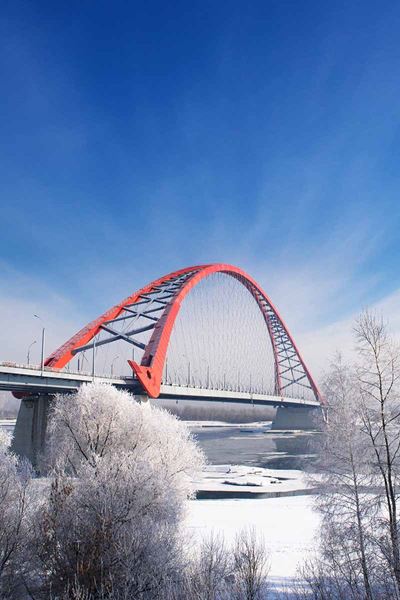When is the best time to visit Novosibirsk?
- In general, it’s pleasant to walk and do outdoor activities during June - August.
- If you want to avoid wet weather, then your choice is January, November, December with the lowest chance of rain.
Average weather in Novosibirsk in different months
May, June, July usually has good weather. Average maximum temperature reaches +24°C during July.
In January, February, March, April, August, September, October, November, December the weather is OK. Expect around 82 snowy days, and the precipitation amounts to approximately 40 mm in November.
Climate in Novosibirsk
| Jan | Feb | Mar | Apr | May | Jun | Jul | Aug | Sep | Oct | Nov | Dec |
|---|---|---|---|---|---|---|---|---|---|---|---|
| Maximum Temperature | |||||||||||
| +3°C | +4°C | +12°C | +28°C | +35°C | +36°C | +35°C | +34°C | +32°C | +23°C | +12°C | +4°C |
| Average Maximum Temperature | |||||||||||
| -13°C | -10°C | -2°C | +7°C | +17°C | +22°C | +24°C | +21°C | +15°C | +6°C | -5°C | -11°C |
| Minimum Temperature | |||||||||||
| -47°C | -41°C | -32°C | -25°C | -6°C | 0°C | +6°C | +2°C | -6°C | -21°C | -42°C | -44°C |
| Avg. water temperature | |||||||||||
| - | - | - | - | - | - | - | - | - | - | - | - |
| Humidity, % | |||||||||||
| 81 | 80 | 77 | 69 | 61 | 68 | 74 | 76 | 76 | 79 | 83 | 82 |
| Rain, mm | |||||||||||
| 0 | 0 | 3 | 19 | 37 | 53 | 64 | 55 | 46 | 30 | 6 | 0 |
| Snow, mm | |||||||||||
| 27 | 20 | 22 | 12 | 4 | 0 | 0 | 0 | 1 | 19 | 40 | 39 |
| Average wind speed, m/s | |||||||||||
| 3 | 3 | 3 | 3 | 3 | 2 | 2 | 2 | 2 | 3 | 3 | 3 |
| Sunny Days | |||||||||||
| 2 | 2 | 4 | 3 | 4 | 4 | 4 | 4 | 4 | 2 | 1 | 1 |
| Cloud Days | |||||||||||
| 16 | 15 | 15 | 13 | 12 | 11 | 10 | 10 | 11 | 13 | 13 | 14 |
| Rainy Days | |||||||||||
| 0 | 0 | 1 | 6 | 13 | 15 | 18 | 17 | 15 | 8 | 1 | 0 |
| Snowy Days | |||||||||||
| 13 | 11 | 11 | 7 | 2 | 0 | 0 | 0 | 1 | 8 | 15 | 16 |
Average Temperature
Humidity
Rain
Snow
FAQ
What is the hottest month in Novosibirsk?
What is the coldest month in Novosibirsk?
Is Novosibirsk worth visiting in winter?
When does it rain the least in Novosibirsk?
Other cities in Russia
Monthly weather in Novosibirsk
Source of the data
For this page, we’ve looked at the typical weather in Novosibirsk, based on historical hourly weather data from January 1, 1979, to December 31, 2023.
For past dates, we show actual recorded data at the location at that time. Forecasts are based on recorded weather during that day of the year, averaged over the total years for which we have records (unless stated otherwise). The daily temperature is the highest recorded temperature in the shadow during that day.

